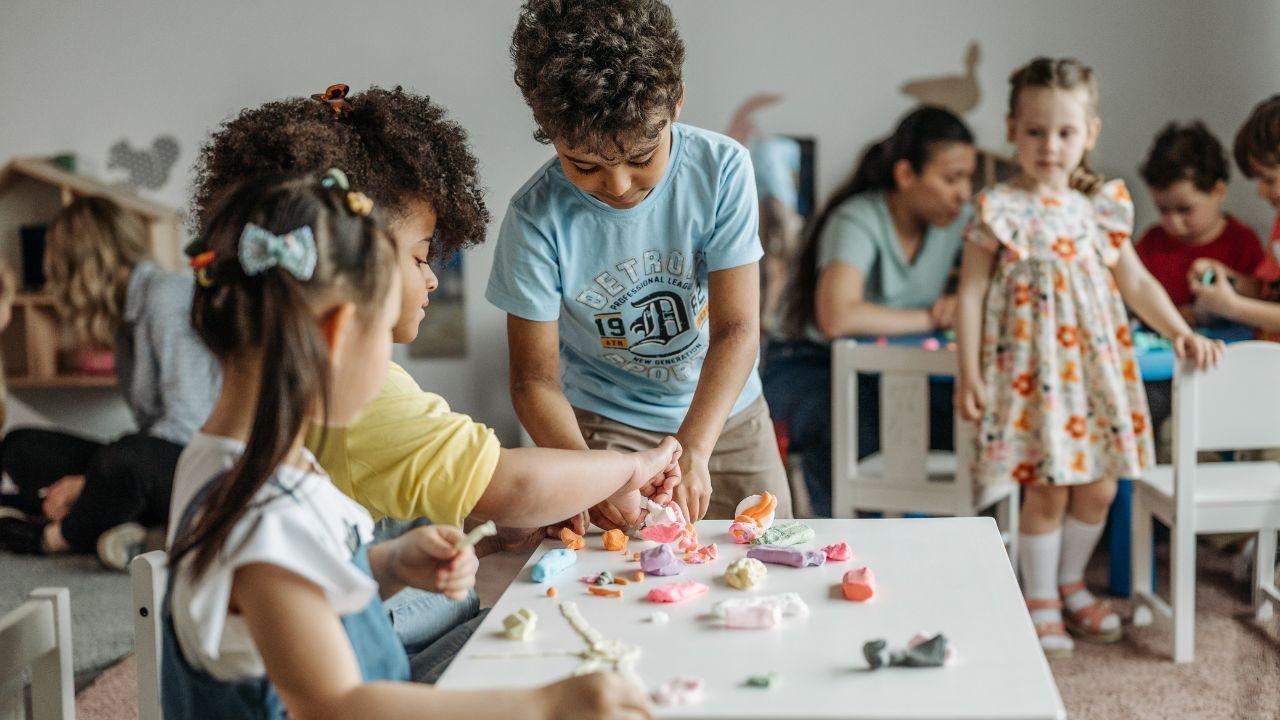



The Power of Self-Efficacy in School Life
Every student has the ability to learn, but not every student believes in their own power to succeed. Some students give up quickly, while others keep trying even after failing. Why does this happen? The answer is something called self-efficacy — the belief a student has in their own ability to do a task or solve a problem. In this article, we will explore the role of self-efficacy in enhancing student interest, and how this simple belief can make a big difference in how students learn and grow.
What Is Self-Efficacy?
Self-efficacy means “I believe I can do this.” It is not about being the best or getting the highest marks. It is about having the courage to try and the confidence to keep going, even when things get tough. When students believe they can do something, they are more likely to work hard, stay focused, and not give up.
Let’s take an example. Two students are learning math. One believes math is too hard and says, “I can’t do this.” The other says, “I don’t know this yet, but I can learn it.” The second student has self-efficacy — and that belief will help them stay interested and improve over time.
How Self-Efficacy Builds Interest in Learning
When students trust their own ability, they feel more excited to take part in class. They try new things, ask questions, and stay curious. This is how the role of self-efficacy in enhancing student interest begins.
Students with self-efficacy:
When a student feels, “I can do this,” they start to enjoy the learning process. That enjoyment turns into deep interest, and interest keeps the student engaged for a longer time.
What Happens Without Self-Efficacy?
On the other hand, students with low self-efficacy often feel stuck. They may think learning is too hard or that they are not smart enough. This makes them lose interest quickly. They stop asking questions, avoid homework, or don’t try their best in tests. Even if they have talent, they don’t use it because they don’t believe in themselves.
Without self-efficacy, it’s hard for students to stay motivated. They may also compare themselves to others and feel bad. This can create fear, worry, and sadness. That’s why building self-belief is just as important as teaching facts and subjects.
How Can Teachers and Parents Help?
Both teachers and parents can play a big part in building self-efficacy in students. It begins with small actions that show support and care.
When students feel supported, their belief in themselves grows. And with belief, comes interest and joy in learning.
Self-Efficacy and Long-Term Success
Students who believe in themselves don’t just do well in school. They also do better in life. They grow up to be confident adults who can handle problems calmly. They don’t fear failure. They know they can learn from mistakes and try again. This mindset helps them in college, in jobs, and in relationships.
This is why the role of self-efficacy in enhancing student interest is not only about school success. It shapes the way a person lives and grows.
Simple Ways Students Can Build Self-Efficacy
Here are a few easy habits students can try:
Every student has something they are good at. Finding that one thing can be the start of building strong belief in oneself.
Disclaimer:
The information provided in this article is for educational and awareness purposes only. Every student is different, and results may vary based on individual effort and circumstances. Myedugoal does not take responsibility for any actions taken based on this content. Please consult your teacher, counselor, or educational expert for personal advice.
#trending #latest #SelfEfficacy #StudentInterest #LearningMotivation #StudyTips #StudentSuccess #EducationSupport #MotivatedLearning #StudentLife #ConfidenceInLearning #LearningJourney #MyEduGoal #GrowthMindset #BeliefInYourself #SchoolMotivation #StudyInspiration

The Link Between Learning Problems and Student Motivation... Read More.

How Learning Preferences Change with Age... Read More.
 Fake posts hit Czech PM Fiala's X
Fake posts hit Czech PM Fiala's X
Fake posts disrupt Czech PM Fiala's X account security
 Switzerland Tightens Export Rules
Switzerland Tightens Export Rules
Switzerland expands export controls on dual-use goods
 Google unveils Ironwood AI chip
Google unveils Ironwood AI chip
Google introduces Ironwood chip to accelerate AI tasks & apps
 TSMC Q1 revenue up 42%
TSMC Q1 revenue up 42%
TSMC sees 42% revenue surge in Q1, surpassing forecasts
 Google unveils Ironwood AI chip
Google unveils Ironwood AI chip
Google's Ironwood chip boosts AI processing and app speed
 Amazon CEO Outlines AI Vision
Amazon CEO Outlines AI Vision
Amazon CEO reveals AI investment plans in new letter
 Osaka Hosts World Expo 2025
Osaka Hosts World Expo 2025
Japan blends tech and culture at Osaka Expo 2025 launch
© MyEduGoal. All Rights Reserved. Design by markaziasolutions.com